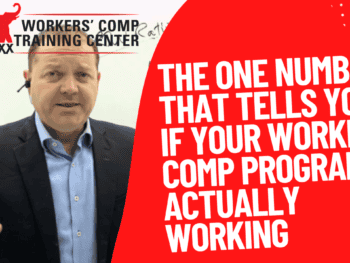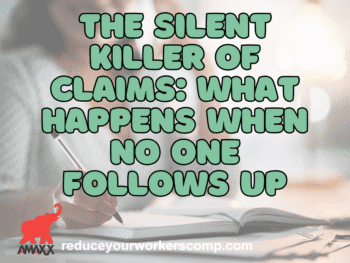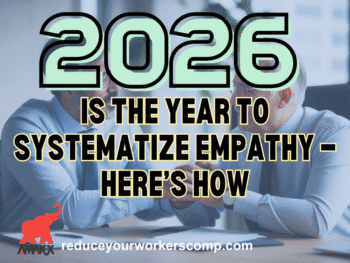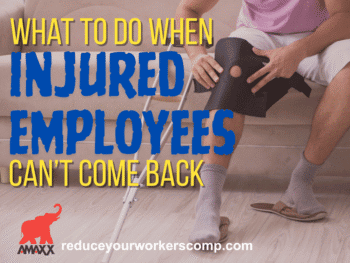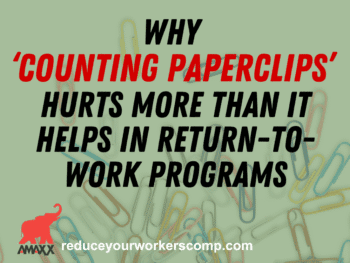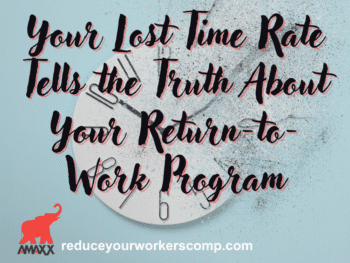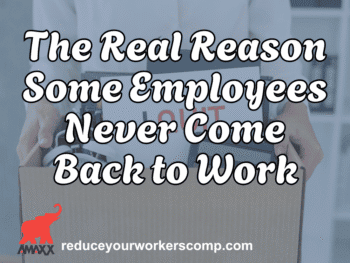
Treat All Employees with Respect and Dignity
The failure to keep emotions in check is the best way to start a claim down the path of excessive money spent on paying benefits and ensuring costly litigation. It starts with the Platinum Rule – Treat Others as You Want to Be Treated. This can mean many things and is easy to implement to change the culture within the industry.
- Express empathy and compassion to all: This starts at the time of injury by ensuring the employee receives the best medical response and timely reporting of a claim. Employers play an essential role by providing proper safety training and first aid. Other steps can be taken by taking the employee to a clinic for non-emergency care requiring additional assistance or something as small as sending a “get better soon” card.
- Avoid being judgmental when an injury is reported: Take everything at face value and record the facts. Never be afraid to ask probing questions, but ensure it is done with the proper tone. Avoid comments that can be perceived as sarcastic or judgmental.
- Promote workplace safety as a value: All employees should be able to provide input on making the workplace safe. Discuss safety at annual training and regularly. A best practice could include a safety reminder at the start of each workday.
The bottom line is to treat everyone with respect.
The Claim Handler Must Know Their Files
The file that collects dust is the file that will cause problems. Claim managers must ensure their staff has the right resources to complete their duties promptly.
- Return all phone calls promptly – no more than 24 hours. Update your voicemail greeting daily to set expectations on availability and schedule.
- Set expectations on the best way to communicate and receive information. Do not become overburdened by emails. Call via telephone when possible.
- Demand everything is documented correctly in the claim system. If something is not written down, it did not occur.
Never confuse working hard with working smart. Use the right resources and technology to get the job done.
Assess and Evaluate Risk Continually
Every claim should be evaluated and re-evaluated to ensure the file moves forward and reserves are correctly set. Every claim handler should work on files that meet their commitment and competence level. Always strive to develop the next generation of claim handlers and team members:
- Demand that defense counsel provide accurate and consistent status reports on litigate files. This can include using a litigation budget and expectations on responses to various events.
- Use all available tools to manage claims better. This can include special units for specialized workers’ compensation matters such as legacy, death, and cumulative trauma claims.
- Communicate all expectations and information efficiently internally. Crucial issues to consider include coordinating government benefits such as Medicare and Medicaid and when ERISA is an issue.
A claim constantly reviewed by the handler working on the file will always be resolved efficiently. It will also drive savings in any workers’ compensation claim program.
Never Pass Up an Opportunity to Engage Other Stakeholders
All workers’ compensation claim process stakeholders should seek opportunities to drive matters toward settlement. Barriers are artificially created in our technologically driven world:
- Consider picking up the phone versus sending an email;
- Do not become a prisoner to email – block of time to get work done and ensure other tasks are completed in an orderly manner; and
- Seek opportunities to develop professional skills and learn the tips of the trade.
Cultural and generational norms drive many barriers created in our society and industry. We pigeonholed ourselves in one area and were afraid to take a risk. Seek the advice of others – the sage advice that makes us better.
Conclusions
Now is the time to drive claims toward settlement and become a better claims industry member by seeking sage advice. This starts with treating employees with respect and dignity following a work injury. It also requires the constant assessment of risk and engagement of other stakeholders.

Contact: mstack@reduceyourworkerscomp.com.
Workers’ Comp Roundup Blog: http://blog.reduceyourworkerscomp.com/
Injury Management Results (IMR) Software: https://imrsoftware.com/
©2024 Amaxx LLC. All rights reserved under International Copyright Law.
Do not use this information without independent verification. All state laws vary. You should consult with your insurance broker, attorney, or qualified professional.

